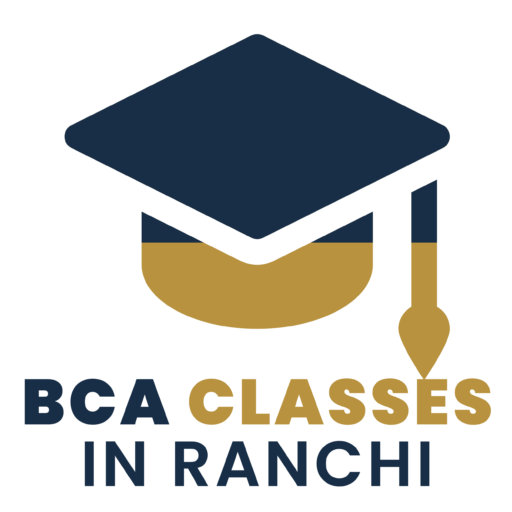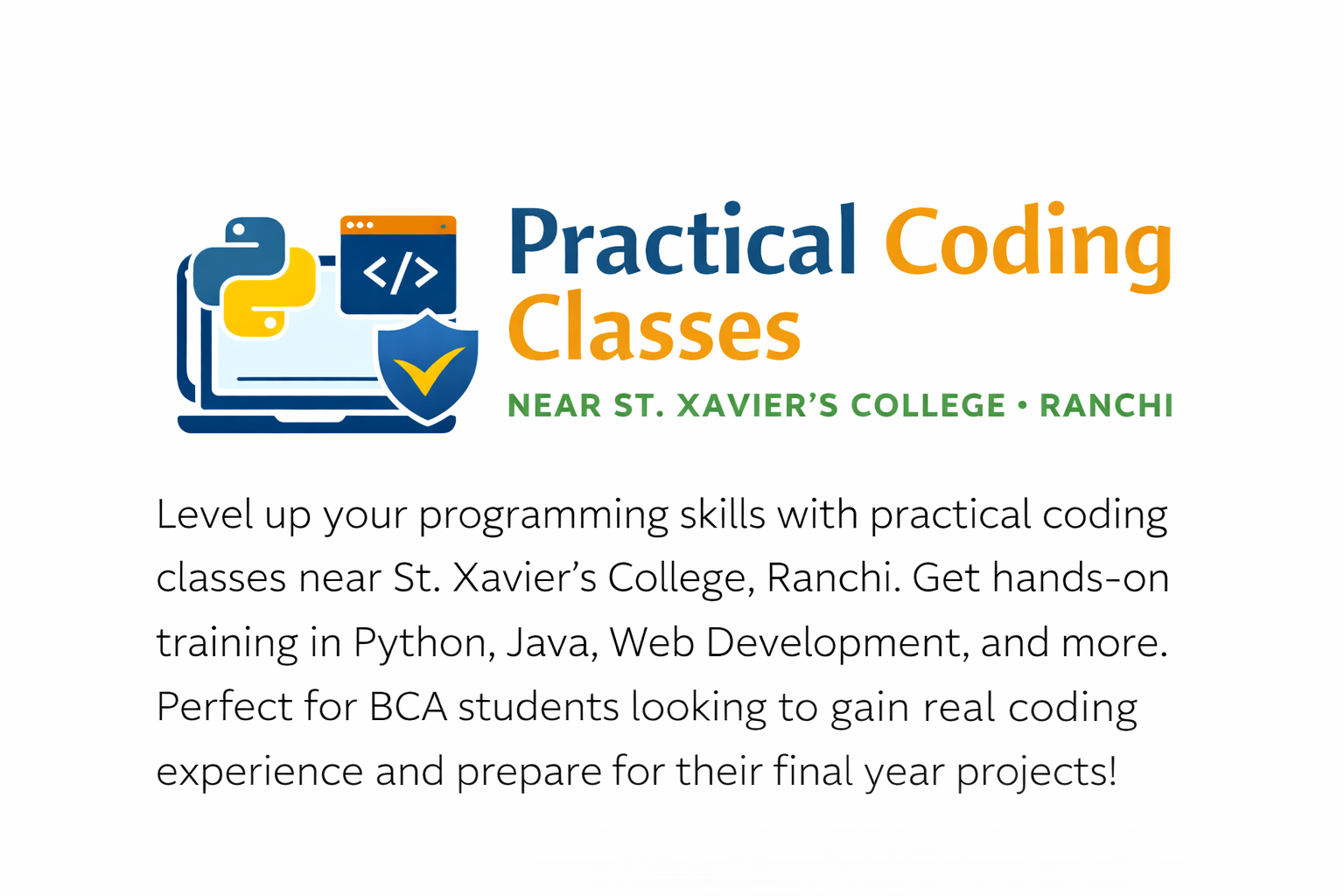Introduction to BCA
The Bachelor of Computer Applications (BCA) is an undergraduate degree designed to equip students with essential skills in the field of computer science and information technology. As digital technology continues to evolve and permeate various industries, the relevance of a BCA degree has significantly increased. Graduates of this program are well-prepared to meet the demands of a dynamic job market, where proficiency in computing and programming is increasingly sought after.
The BCA curriculum encompasses a diverse range of subjects, from fundamental programming languages to advanced topics in software development and database management. This comprehensive approach ensures that students not only gain theoretical knowledge but also practical experience through project work and internships, fostering a deeper understanding of real-world applications. Graduates emerge with skills that are applicable across numerous sectors, making them versatile candidates for various roles in technology-driven environments.
The course is particularly well-suited for individuals who possess a keen interest in computer systems, problem-solving, and analytical thinking. It caters to those aiming to build a career in technology, whether they are targeting roles in software development, web design, data analytics, or IT consultancy. As organizations increasingly rely on information technology solutions, a BCA qualification provides a strong foundation for aspiring professionals to embark on rewarding careers.
Over the years, the popularity of the BCA course has grown exponentially, with educational institutions enhancing their offerings to align with industry trends. This upward trajectory reflects the growing recognition of the importance of computer applications in business operations and innovative solutions. As such, students pursuing a BCA degree can expect to leave the course with a skill set that is not only valuable but also relevant to the constantly changing job landscape.
BCA Course Structure
The Bachelor of Computer Applications (BCA) program is structured to provide a comprehensive education in the field of computer science and applications. Typically, the BCA course spans three years, divided into six semesters. Each semester is designed to build upon the previous one, integrating theoretical knowledge with practical skills necessary for a successful career in the IT industry.
The core subjects focus on fundamental areas of computer science, such as programming languages, database management, software engineering, and web development. These core modules are essential for establishing a strong foundation in computing principles. Alongside core subjects, students are often given the option to choose elective subjects. These electives may cover specialized areas such as mobile app development, data science, or network security, allowing students to tailor their education to meet specific career interests and market demands.
Practical training plays a significant role in the BCA curriculum. Students are encouraged to engage in hands-on projects that complement their theoretical studies. Such projects not only enhance their understanding of the subject matter but also equip them with skills that are directly applicable to real-world scenarios. Additionally, the incorporation of internships into the course structure allows students to gain valuable industry experience and professional exposure, enhancing their employability upon graduation.
The BCA program thus integrates theoretical knowledge with practical applications, preparing students to meet the challenges of the rapidly evolving IT sector. This dual approach ensures that graduates are not only proficient in theoretical concepts but also adept at applying their knowledge in practical situations, making them well-rounded candidates for various roles in technology and software development.

BCA Syllabus Overview
The Bachelor of Computer Applications (BCA) program is structured to provide students with a robust understanding of computer science, programming languages, and various applications that form the backbone of modern technology. The BCA syllabus is typically divided into six semesters, each encompassing a range of core subjects, elective courses, and practical sessions tailored to equip students with essential skills and knowledge.
In the initial semesters, students are introduced to fundamental concepts including Programming, Data Structures, and Computer Organization. Programming is focused on teaching students various high-level programming languages, while Data Structures emphasizes the organization and manipulation of data. The inclusion of Computer Organization provides an overview of how computer systems are structured and function.
As students progress through the program, the curriculum incorporates foundational topics such as Database Management Systems (DBMS) and Networking. DBMS covers essential principles of database design, querying, and management, essential for managing data effectively. Networking introduces students to network topologies, protocols, and security measures, thereby preparing them for challenges in real-world IT environments.
The latter semesters of the BCA program focus on advanced topics like Web Development, where students learn to create websites and web applications utilizing various technologies and programming languages. Additionally, practical sessions are an integral part of the curriculum, allowing students to apply theoretical knowledge and hone their skills in a hands-on environment.
Furthermore, the inclusion of soft skills training and professional development courses equip students with interpersonal skills, which are vital for success in the workplace. Such training fosters teamwork, communication, and leadership abilities, ensuring that graduates are well-rounded professionals ready to meet industry demands.
Conclusion and Future Prospects
As the digital landscape continues to evolve, graduates of the Bachelor of Computer Applications (BCA) program find themselves positioned advantageously in a thriving job market. The BCA course equips students with essential skills in programming, software development, and information technology, making them highly attractive to potential employers. The increasing reliance on technology across various sectors has substantially broadened the scope of employment opportunities for BCA graduates. Positions in software development, system analysis, web development, and cybersecurity are just a few examples of roles that BCA holders can pursue.
Moreover, the potential for career advancement is significant. BCA graduates are often encouraged to continue their education by pursuing specialized master’s programs or certifications in areas such as data science, artificial intelligence, or cloud computing. These further studies not only enhance one’s skill set but also improve the potential for higher-paying positions and increased job security. In addition, specialized certifications from recognized bodies can help BCA graduates stand out in a competitive job market, showcasing their commitment to lifelong learning and professional development.
To maintain a competitive edge, BCA graduates must stay abreast of emerging trends and technologies within the IT industry. Engaging in continuous learning and participating in online courses, workshops, and industry conferences can significantly contribute to professional growth. Networking with industry professionals and joining relevant online forums can also provide valuable insights and open doors to new opportunities.
Conclusion
In conclusion, the BCA course lays a solid foundation for a rewarding career in the rapidly advancing field of technology. With continued education and adaptability, graduates can enhance their employability and position themselves for long-term success. The future holds promising prospects for those willing to embrace change and invest in their professional development.
Phone Number: +91-7488456170
Email ID: abhishek@eepl.me
Our Platforms:
Digilearn Cloud
EEPL Test
Live Emancipation
Follow Us on Social Media:
Instagram – EEPL Classroom
Facebook – EEPL Classroom
Stay connected and keep learning with EEPL Classroom !









